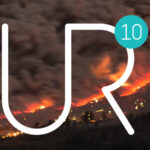
Misinformation, disinformation, and risk: When science alone doesn’t cut it
October 29, 2020 10:36 am Leave a comment
Misinformation, disinformation, and risk: When science alone doesn’t cut it
Organizer: BBC Media Action, NASA, Columbia University Earth Institute’s International Research Institute with Red Cross Red Crescent Climate Centre
| Information alone in insufficient for prompting action in regard to the reduction of risk. Cognitive biases, blind-spots, and social norms are just some of the ways that diminish one’s ability to make decisions and take action. But what happens when we layer misinformation and disinformation on top of these already existing challenges, leaving people to decipher what is true, what isn’t, and how to make decisions that affect real life? This side event will provide examples of how misinformation and disinformation can impede risk-related decision making. It will explore how scientists, media professionals, government agencies, communication managers and others can work together effectively, translating technical information and cutting through increasingly complicated media landscapes to help ordinary people make informed decisions that reduce risk and save lives. The session will open with a brief presentation followed by interactive breakout rooms that tests approaches to preventing and responding to mis- and disinformation. The workshop will center around a number of scenarios based on real-life challenges. It will also provide time for discussion around select examples that participants bring to the session on the day. |
Speakers:
Lisa Robinson, Head of Advisory. Lead on Resilience and Humanitarian Response.
Shanna McClain, Global Partnerships Manager. Risk Reduction & Resilience Advisor
Andrew Kruczkiewicz, Faculty/Senior Researcher Columbia University.
Science Adviser Red Cross Red Crescent Climate Centre.


